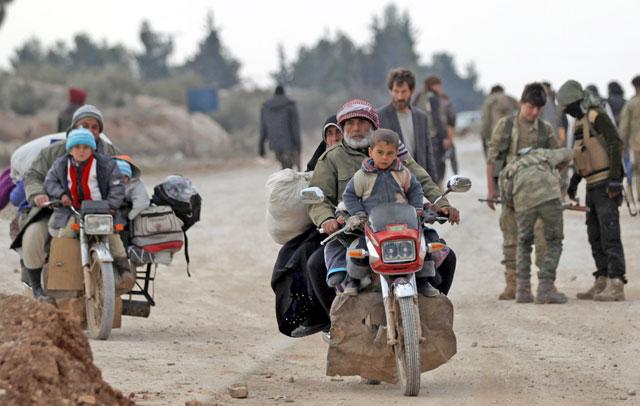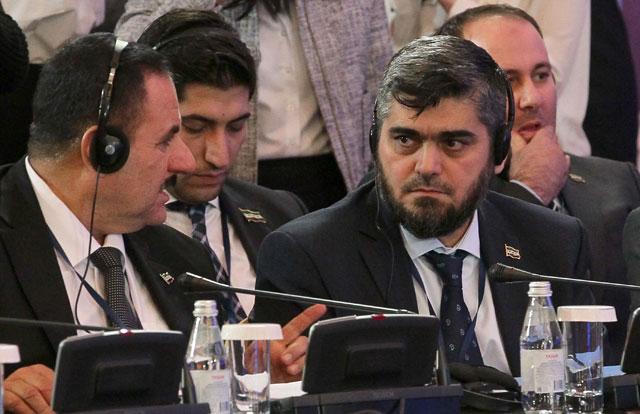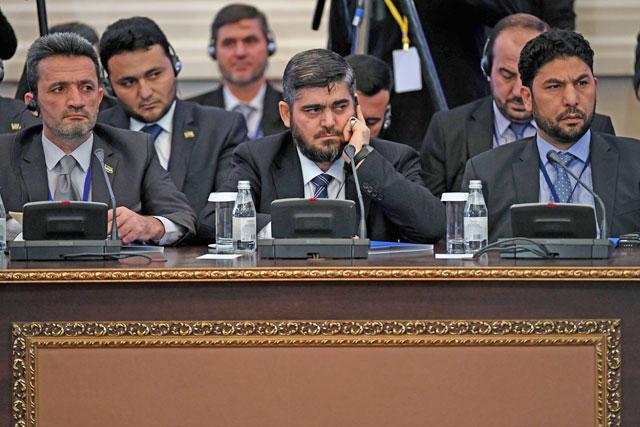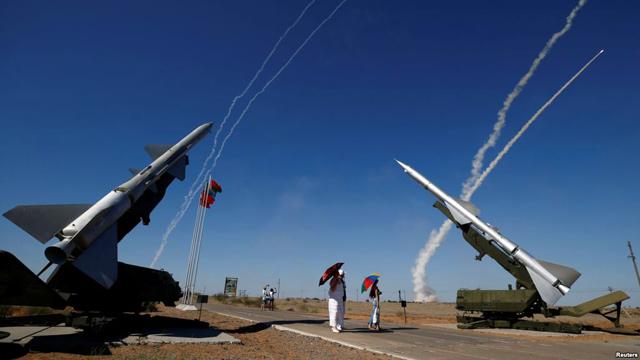You are here
Russia’s Lavrov backs renewal of UN-led Syria talks
By Reuters - Feb 05,2017 - Last updated at Feb 05,2017

People who fled the violence from the Daesh-controlled northern Syrian town of Al Bab arrive on the outskirts of the Free Syrian Army and Turkish forces controlled Al Bazaa village in Syria, on Saturday (Reuters photo)
MOSCOW — Russia said on Sunday that it supports the continuation of Syria peace talks under United Nations auspices, long-running negotiations which had been thrown into doubt by separate, Moscow-backed peace talks launched last month.
The latest round of UN talks had been planned to begin in Geneva on February 8 but Russia's Foreign Minister Sergei Lavrov said last week that they had been postponed.
They have now been rescheduled for February 20, diplomats have told Reuters. The UN envoy for Syria, Staffan de Mistura, said he had decided to delay them to take advantage of negotiations between the Syrian government and opposition in Astana, Kazakhstan, hosted by Moscow, Ankara and Tehran.
The Astana talks last month ended with Russia, Turkey and Iran agreeing to monitor Syrian government and opposition compliance with a December 30 truce brokered by Moscow and Ankara.
Lavrov said on Sunday the Astana talks between representatives of Syrian President Bashar Assad and opposition groups were a "breakthrough step" in efforts to resolve the crisis but were not instead of the UN-led talks.
"We are not planning to replace Geneva with the Astana format," he said in an interview published on the ministry's website on Sunday.
The Astana talks were a diplomatic coup that underlined the growing Middle East clout of Russia, Iran and Turkey and Washington's diminished influence at a time when Donald Trump is settling into the presidency.
But the talks spotlighted sharp differences between Moscow and Tehran over the possible future participation of the United States and also excluded Gulf states, despite their major role in the proxy war in Syria that has drawn in the entire region.
Iran, whose relations with Washington have nosedived since Trump became president, opposes any US involvement.
Lavrov reiterated on Sunday that the United States and Moscow were in a position to solve bilateral issues, improve ties and coordinate efforts to fight "international terrorism", but said it had to be on the basis of mutual respect.
The secretary of Iran's Supreme National Security Council, Ali Shamkhani, also praised the Astana talks in a meeting with Russia's special envoy on Syria, Alexander Lavrentiev, in Tehran on Sunday, according to the Islamic Republic News Agency (IRNA).
But he said peace was not achievable while Daesh, which he labelled Daesh, as well as Al Qaeda linked Al Nusra Front, which has renamed itself Jabhat Fateh Al Sham, and other unnamed groups he said were linked to them were present.
“As long as Daesh and Al Nusra and groups linked to them are present in Syria — and they are being protected and supported by some countries in the region — a political solution and peace for Syria and the region will not be achievable.”
The Syrian opposition have objected to Iran’s role in the Astana talks, blaming Shiite militias backed by Tehran for violations of the fragile ceasefire agreement by launching military assaults in rebel-held suburbs of the capital.
De Mistura said the United Nations would be attending a follow up technical meeting in Astana on February 6 of the talks on the implementation and monitoring of the Syria ceasefire.
Related Articles
ASTANA, Kazakhstan — Syrian regime and rebel representatives failed Thursday to make any breakthroughs at talks in Kazakhstan, as key powerb
ASTANA — Syria’s warring sides met for talks for the first time in nine months on Monday, with frosty initial exchanges suggesting chances o
UNITED NATIONS, United States — Russian Foreign Minister Sergei Lavrov said on Friday Moscow had started delivering the S-300 surface-to-air



















